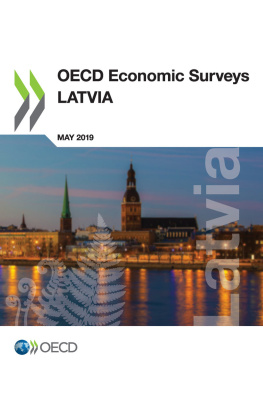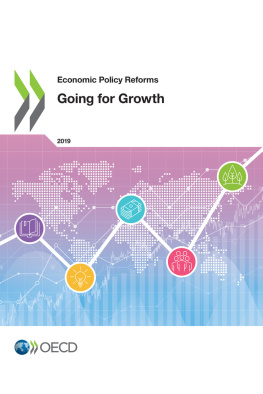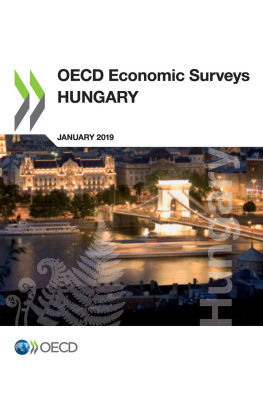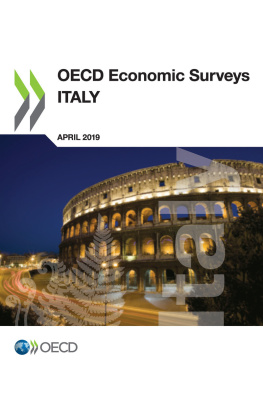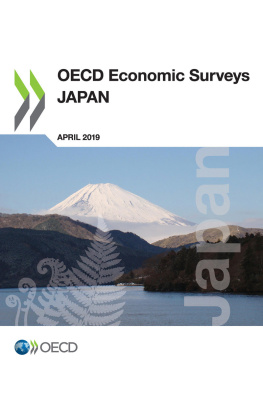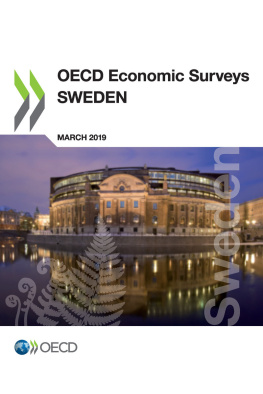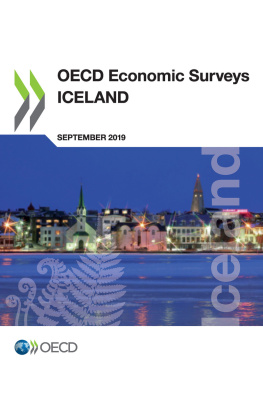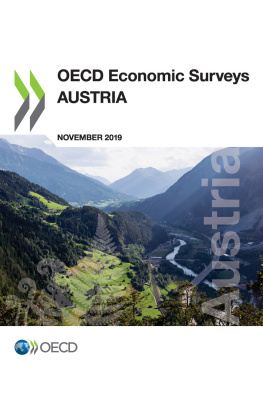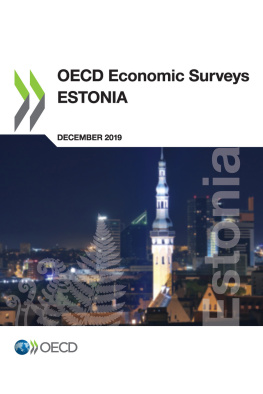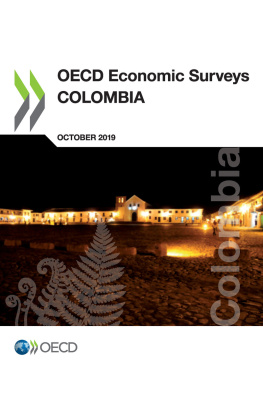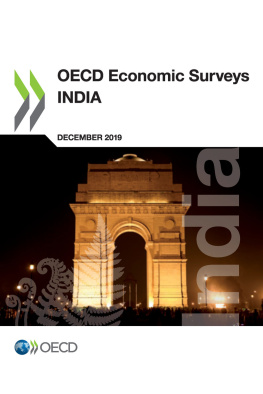OECD - OECD Economic Surveys: Latvia 2019
Here you can read online OECD - OECD Economic Surveys: Latvia 2019 full text of the book (entire story) in english for free. Download pdf and epub, get meaning, cover and reviews about this ebook. year: 2019, publisher: OECD Publishing, genre: Politics. Description of the work, (preface) as well as reviews are available. Best literature library LitArk.com created for fans of good reading and offers a wide selection of genres:
Romance novel
Science fiction
Adventure
Detective
Science
History
Home and family
Prose
Art
Politics
Computer
Non-fiction
Religion
Business
Children
Humor
Choose a favorite category and find really read worthwhile books. Enjoy immersion in the world of imagination, feel the emotions of the characters or learn something new for yourself, make an fascinating discovery.
OECD Economic Surveys: Latvia 2019: summary, description and annotation
We offer to read an annotation, description, summary or preface (depends on what the author of the book "OECD Economic Surveys: Latvia 2019" wrote himself). If you haven't found the necessary information about the book — write in the comments, we will try to find it.
OECD: author's other books
Who wrote OECD Economic Surveys: Latvia 2019? Find out the surname, the name of the author of the book and a list of all author's works by series.
OECD Economic Surveys: Latvia 2019 — read online for free the complete book (whole text) full work
Below is the text of the book, divided by pages. System saving the place of the last page read, allows you to conveniently read the book "OECD Economic Surveys: Latvia 2019" online for free, without having to search again every time where you left off. Put a bookmark, and you can go to the page where you finished reading at any time.
Font size:
Interval:
Bookmark:
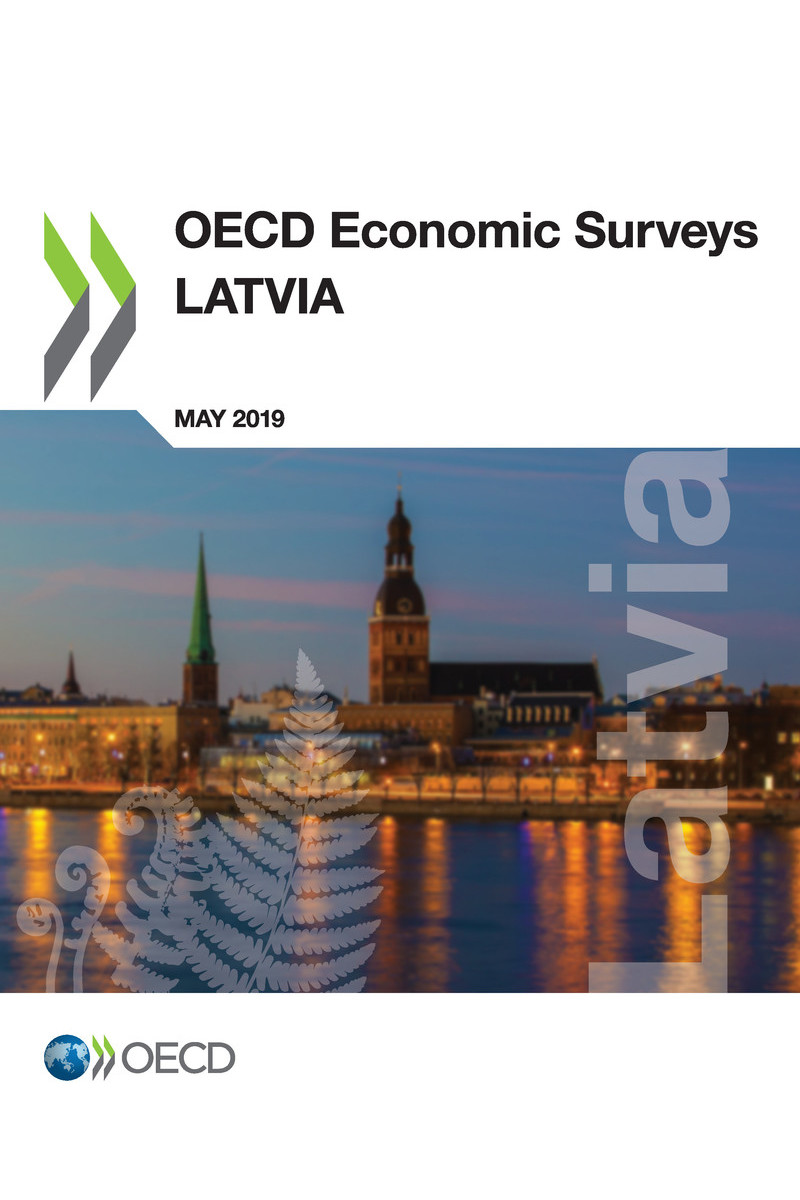
OECD (2019), OECD Economic Surveys: Latvia 2019 , OECD Publishing, Paris, https://doi.org/10.1787/f8c2f493-en .
This Survey is published under the responsibility of the Economic and Development Review Committee of the OECD, which is charged with the examination of the economic situation of member countries.
The economic situation and policies of Latvia were reviewed by the Committee on 8 April 2019. The draft report was then revised in the light of the discussions and given final approval as the agreed report of the whole Committee on 9 May 2019.
The Secretariats draft report was prepared for the Committee by Naomitsu Yashiro and Caroline Klein under the supervision of Nicola Brandt. The Survey also benefitted from consultancy work by Olga Rastrigina and Ania Thiemann and joint research with Konstantns Bekovskis and Oegs Tkaevs. Statistical research assistance was provided by Corinne Chanteloup and editorial support was provided by Elisabetta Pilati.
The previous Survey of Latvia was issued in September 2017.
Information about the latest as well as previous Surveys and more information about how Surveys are prepared is available at www.oecd.org/eco/surveys .
Basic Statistics of Latvia, 2018 |
|---|
(Numbers in parenthesis refer to the OECD average) a |
 |
Better life index: www.oecdbetterlifeindex.org |
a. Where the OECD aggregate is not provided in the source database, a simple OECD average of latest available data is calculated where data exist for at least 29 member countries. |
Source: Calculations based on data extracted from the databases of the following organisations: OECD, International Energy Agency, International Monetary Fund. |
The economy is in a broad-based upswing led by domestic demand . Fast earnings increases are supporting private consumption. A strong rebound of investment pushed GDP growth rates above 4% in 2017 and 2018. GDP growth is expected to slow to around 3% in 2019 and 2020, as world trade weakens and investment slows to a more sustainable pace.

Source : OECD National Accounts Database.
StatLink https://doi.org/10.1787/888933925844
Unemployment has been decreasing fast and job vacancies are continuing to grow . Latvia continues to lose workers through migration and more than 40% of all emigrants between 2009 and 2016 were high-skilled. This contributes to rising skill shortages. Along with a 13% rise in the minimum wage in 2018 this has fuelled wage growth, which is running at roughly 8%. Exporters still enjoy rising market shares and strong profitability, although continued increases in unit labour costs could ultimately undermine their competitiveness.

Source : Central Statistical Bureau of Latvia; Eurostat.
StatLink https://doi.org/10.1787/888933925863
Macroeconomic policies are sound . The ECBs policy interest rates are low and fiscal policy is broadly neutral , as the phasing in of personal and corporate income tax reform is compensated by higher excise taxes and spending restraint in some other areas.
While wage growth has been buoyant, for now, inflation looks stable and credit growth is weak. Core inflation has been firmly anchored around 2%. While private sector debt and non-performing loans have fallen fast to comfortable levels and the banking sector is well capitalised, credit growth remains close to nil. Banks remain cautious after heavy losses, partly caused by inefficient insolvency procedures, in the aftermath of the 2008 crisis. The widespread under-declaration of income also plays a role.
Table A. Economic growth will remain robust |
|---|
 |
Source : OECD Economic Outlook 105 database. |
Anti-money laundering efforts have been stepped up. Latvia banned its banks from servicing certain types of high risk shell companies and oversaw a reduction in non-resident deposits by more than 60 % to reduce money-laundering risks. Based on recommendations of international experts (Moneyval, 2018) the new government, assisted by the OECD, works on implementing an action plan that would strengthen the quality and capacity of Latvias supervisory, control and law enforcement bodies and enhance international cooperation on anti-money laundering and combating of terrorism financing.
Income inequality and poverty remain high. Living standards have improved fast overall, but regional disparities in income per capita are pronounced. Social protection is limited and housing conditions are poor for a relatively large share of the population. Taxes and benefits could do more to lower inequality.
Font size:
Interval:
Bookmark:
Similar books «OECD Economic Surveys: Latvia 2019»
Look at similar books to OECD Economic Surveys: Latvia 2019. We have selected literature similar in name and meaning in the hope of providing readers with more options to find new, interesting, not yet read works.
Discussion, reviews of the book OECD Economic Surveys: Latvia 2019 and just readers' own opinions. Leave your comments, write what you think about the work, its meaning or the main characters. Specify what exactly you liked and what you didn't like, and why you think so.

